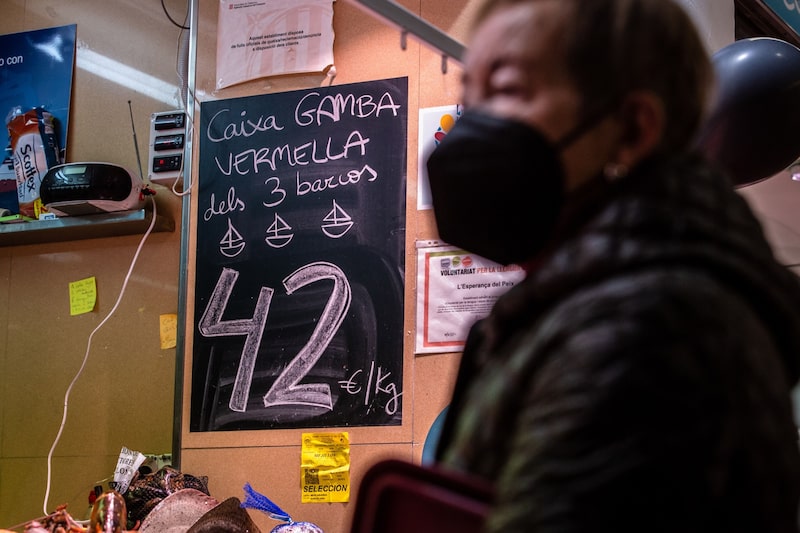Bloomberg — Consumer prices in the U.S. rose at the fastest annual pace since 1982, keeping pressure on the Federal Reserve to quicken the pace of tightening policy.
In Brazil and Peru, central bankers are well into tightening cycles as they combat inflation surges. While France’s economy remains resilient, the U.K. is lagging, and local measures to curb the spread of the omicron variant could dampen activity even further.
Here are some of the charts that appeared on Bloomberg this week on the latest developments in the global economy:
U.S.

Consumer prices rose last month at the fastest annual pace in nearly 40 years, underscoring how rapid and persistent inflation is eroding paychecks and increasing pressure on the Federal Reserve to tighten monetary policy. The increase in the CPI reflected broad advances in most categories, similar to last month’s report.

The monthly U.S. Logistics Managers’ Index released this week hardly showed a lurch toward normal supply chains. The gauge climbed for a second month in November, reflecting warehouse costs that jumped to a record, as well as rising inventory and transportation expenses and survey respondents don’t anticipate any significant relief over the next 12 months.
Europe

Power prices for delivery next year surged almost 11% in Germany and 7.7% in France as freezing weather has forced European utilities to burn more gas, coal and even oil to keep the lights on. Europe’s energy crunch is set to last as electricity prices climb to a record, fueling inflation and raising bills for millions of households and industries across the continent.

French economic activity will continue to rise in December, despite another wave of the Covid-19 pandemic and fresh uncertainty over the omicron variant, according the Bank of France. The institution estimates economic activity was 0.5% above pre-crisis levels in November and will be 0.75% higher this month.

U.K. business groups called for government support after Prime Minister Boris Johnson announced restrictions to curb the spread of the omicron variant, which Bloomberg Economics estimates could cost the economy as much as 2 billion pounds ($2.6 billion) a month.
Asia

Japan’s economy shrank at a faster pace than first estimated as shoppers cut back further during summer’s Covid surge.
Emerging Markets

Brazil’s retail sales unexpectedly dropped for the third straight month, adding to bad news after high inflation and aggressive interest rate hikes dragged Latin America’s largest economy into recession.

Mexico posted its fastest annual inflation in almost 21 years as the central bank prepares to boost interest rates for the fifth consecutive meeting next week.

Brazil’s central bank delivered its second straight interest-rate hike of 150 basis points and pledged that the world’s most aggressive tightening cycle won’t end until rising inflation estimates return to target. In Peru, officials raised rates for a fifth straight month.
World

Around the world, millions of people are rethinking how they work and live—and how to better balance the two. Almost half of the world’s workers are considering quitting, according to a Microsoft Corp. survey. Working hours have been dropping in richer countries for decades across all age brackets.

The share of global wealth held by billionaires surged to a record during the Covid-19 crisis, according to a group founded by French economist Thomas Piketty. The study’s findings add to a debate about worsening inequality during a public health crisis that’s hurt developing economies -- which are short of vaccines as well as financial resources to cushion the blow -- even more than advanced ones.
--With assistance from Isis Almeida, Lizzy Burden, Maria Eloisa Capurro, Sophie Caronello, María Cervantes, Toru Fujioka, Max de Haldevang, William Horobin, John Liu, Joe Mayes, Alessandra Migliaccio, Brendan Murray, Reade Pickert, Andrew Rosati, Augusta Saraiva, Zoe Schneeweiss, Jesper Starn, Yuko Takeo and Lin Zhu.

